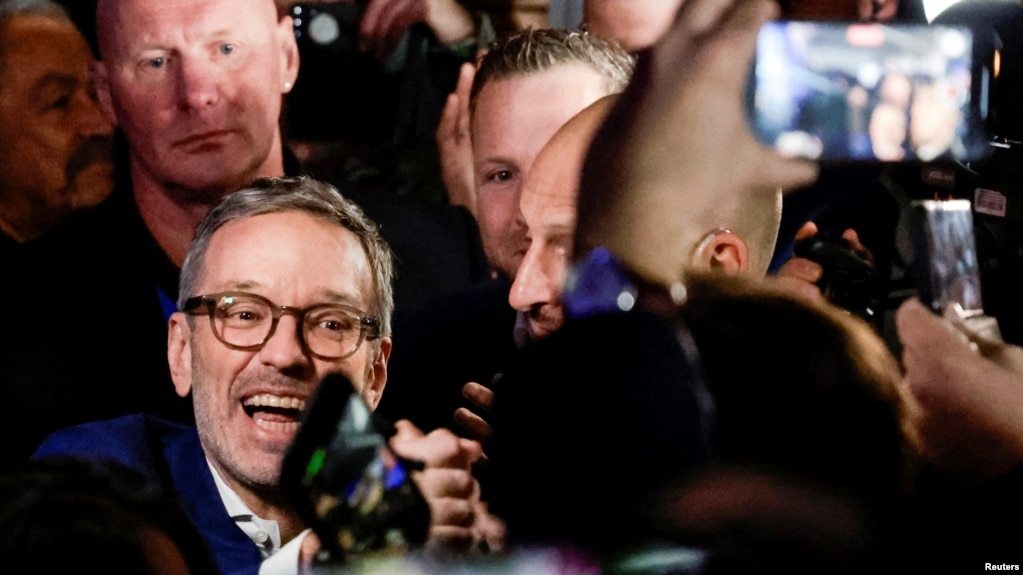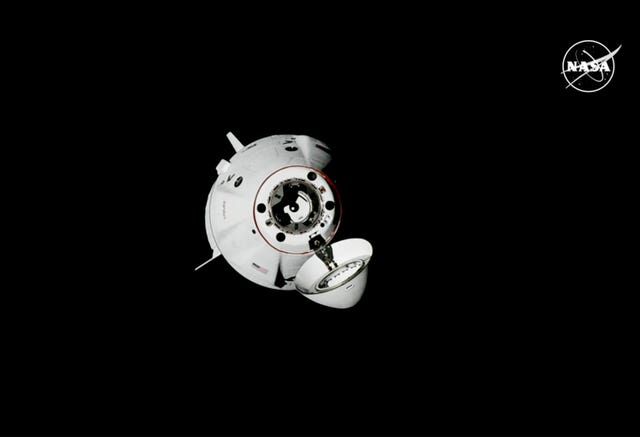ByAlexander Tanas
September 30, 2024 —
Chisinau:
Infrastructure Minister Andrei Spinu’s warning underscored the increasingly unruly campaign for the October 20 presidential election in which pro-European incumbent Maia Sandu is seeking a second term.
Voters will also take part in a referendum on altering the Constitution to enable ex-Soviet Moldova, one of Europe’s poorest countries, to press for membership of the 27-nation EU. The country of 3 million is wedged between southern Ukraine, near Odesa, and Romania.

Much of Moldova’s capital Chisinau has had to be rebuilt repeatedly thanks to the wars and conflicts of the 20th century.CREDIT:ISTOCK
The most vocal opponent of EU membership, fugitive pro-Russian businessman Ilan Shor, offered in a weekend Telegram post to pay voters the equivalent of $42 if they registered for his campaign in the country lying between Ukraine and Romania.
Voters, he said, would get larger rewards if they cast “no” ballots in the referendum and if results showed they lived in electoral districts rejecting the proposal.
Israel-born Shor, who holds Russia, Israeli and Moldovan nationalities, was sentenced to 15 years in prison last year in absentia in connection with his role in the disappearance of $US1 billion ($1.4 billion) from Moldova’s banking system.
Exiled in Russia, the 37-year-old now heads the Victory election bloc, but is barred from taking part in the campaign.

President Maia Sandu signs the decree initiating Moldova’s EU accession negotiations, in Chisinau in June.CREDIT:PRESIDENCY/AP
Spinu, who besides being minister, heads Sandu’s re-election campaign team, said opponents of the president’s EU drive were “using money to buy votes and people”.
“They are using propaganda to spread lies about the European Union and frighten people with all sorts of tall tales,” he wrote on Telegram. “Let us not believe thieves, fugitives and bandits.”
Sandu, who denounces Russia’s invasion of Ukraine and views Moscow as one of the biggest threats facing Moldova, also told voters in a Saturday address to be on guard against fraud.
“The liars are now trying to intimidate us and oblige us to take decisions other than those that we want,” she said. “We must not let them decide our own fate.”
In recent days, paint has been daubed on buildings belonging to Moldova’s state-owned broadcaster, the Supreme Court and two other state institutions. Police blame the incidents on a group trained in Moscow to destabilise the election.
Sandu is favoured to win the presidential vote against 10 challengers, with a recent poll crediting her with about 27 per cent support. That poll put backing for EU membership at 56 per cent among decided voters with 34 per cent opposed.
Reuters
Kremlin’s Influence Looms over Georgian Dream in the October Elections
The ruling Georgian Dream party’s campaign ahead of Georgia’s parliamentary elections in October has been marred by fear-mongering and echoes of Russian-style propaganda on the war in Ukraine.
by Euractiv | September 30, 2024,

The ruling Georgian Dream party’s campaign ahead of Georgia’s parliamentary elections in October has been marred by fear-mongering and echoes of Russian-style propaganda on the war in Ukraine.
A month before the polls open, Georgia’s pro-Russian oligarch and honorary chairman of Georgian Dream, Bidzina Ivanishvili, pledged to apologise to South Ossetians for the actions of the former ruling party during the August 2008 war.
His statement, seen as blaming Georgia for starting the conflict with Russia, came during a campaign speech in Gori, a city persistently bombed by Russia, near the occupation line.
In outrage, the wives of the Georgian fighters murdered by Russia during the August 2008 war started publicly apologising to their fallen husbands.
Advertisement
Maka Chikviladze, a wife of Georgian National Hero Giorgi Antsukhelidze, who was captured, tortured and murdered during the war, posted the photo of Giorgi’s torture with the quote: “August 9, 2008… ‘Ossetian brothers’ boot on Giorgi’s back. Apologies [to you] Giorgi.”
Launching his party’s campaign, Ivanishvili voiced the goal of securing a constitutional majority. Ivanishvili justified this as a way to punish the former ruling United National Movement (UNM) party, which Georgian Dream blames for the 2008 war with Russia, and to dismantle the “agents’ network,” eliminate radicalism, reduce polarization, and counter “liberal fascism”.
Despite the EU’s expansion fatigue, it is imperative that the West welcome North Macedonia into its fold, as the region is strategic and the forces pulling it in the opposite direction are perilous.
This encapsulates Georgian Dream’s election campaign, which is riddled with disinformation tactics reflective of those used by the Kremlin.
Russian propaganda as the election strategy
Disinformation strategies, adopted by Georgia’s ruling party to deepen societal divisions, have long been a hallmark of the political landscape of Georgia. Euractiv has extensively reported on the “Second Front” and “Global War Party” disinformation narratives promoted by Georgian Dream.
Oligarch Ivanishvili has publicly and repeatedly blamed the former Georgian government for starting the 2008 August war during the campaign. For years, Russia has been trying to make the citizens of Georgia, as well as the rest of the world, believe this lie with its own propaganda.
Dmitry Polyanskiy, Russia’s Charge d’Affaires to the United Nations, even referenced portions of the statement from Georgia’s ruling party, with the exact same wording as Ivanishvili’s team did.
People at home protested Ivanishvili’s apology to South Ossetians, reminding the Oligarch that “Russian propaganda no longer works”, “Georgia will never apologize”.
Kremlin propagandists praised Ivanishvili’s war accusations, with Margarita Simonian calling it “amazingly adequate” and welcoming the change in tone, while Nadara Friedrichson called Ivanishvili’s statement as “historic” marking a new phase in Tbilisi-Moscow relations.
Halted EU integration
“To Europe only with peace, dignity and prosperity” – Georgian Dream advertises the parliamentary elections as a referendum between war and peace; slavery and dignity; regression and progress; complete hopelessness and Georgia’s European future.
As done in Russia, Georgian Dream openly leverages the LGBTQ community, claiming that anti-Christian forces aim to erase national, state, and individual identities, reducing people to beings without dignity, religious, or national identity.
The narrative is further used to depict the West as a force attempting to subjugate the Georgian people. This has recently culminated in the passage of another Kremlin-style anti-LGBTQ law, further fueling hate crimes and increasing stigma and discrimination against the LGBTQ community.
Hostile actors, “instead of spreading poorly fabricated stories… are playing with emotions, especially on fears of war,” Tamar Kintsurashvili, director of Georgia’s Media Development Foundation, told Euractiv.
But the European perspective in Georgian Dream’s election promise is, perhaps, very far from reality.
The EU has frozen Georgia’s accession process, as well as millions in funding over a Russian-style foreign agents law. Brussels has repeatedly stated that “all options are on the table” and has recently issued a warning about the temporary suspension of visa-free access. Georgian PM Irakli Kobakhidze has conversely claimed that after the initiation of the foreign agents law, the chances of opening negotiations with the EU have increased.
“It isn’t always easy to detect the problem, especially in the case of a ruling party which doesn’t deny EU integration per se in public discourse but speculates on division in Western society and amplifies the message that they are planning to integrate in a conservative EU rather than a perverted one,” Kintsurashvili added.
All eyes on elections
For the first time in the history of Georgia, the 2024 elections will be held in a fully proportional system. The opposition, bidding on ousting the government and saving Georgia’s democracy and Western orientation, is motivated by a need to collaborate in order to minimize wasted votes.
Following the 2023 ban on electoral blocs, the only viable option for opposition parties has been to unify. The president is endorsing these efforts, having first introduced the Georgian Charter as a framework to assist opposition parties in guiding the country towards European integration.
Georgian Dream vows to ban all opposition parties, prompting Brussels to issue another warning. The party, nonetheless, continues to dance to the beat of its own drum. Georgian Dream MP Nino Tsilosani argued that banning political parties is a viable method for safeguarding democratic states.
Georgia approaches parliamentary elections amid the shadow of laws borrowed from the Kremlin and a climate of mass repression that includes beaten and jailed government critics. Despite punitive measures, civil society is coming together to observe elections at its maximum capacity.
In the face of repeated efforts to divide society, Georgian citizens remain united around their national interests, pledging to defend their votes, the country’s sovereignty, and its Euro-Atlantic future.
This autumn will show whether the will of the Georgian people will be upheld.
This article is part of the FREIHEIT media project on Europe’s Neighbourhood, funded by the European Media and Information Fund (EMIF).
Reprinted from Euractiv. You can find the original here.












